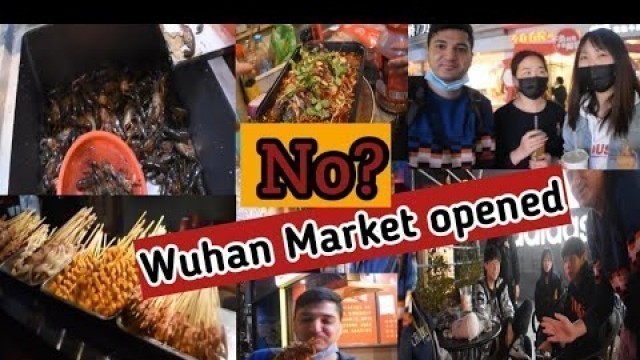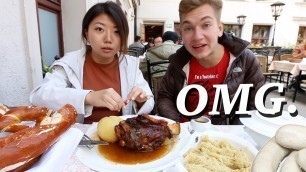

'Wuhan\'s Disputed Wet Markets Reopen as City Emerges from Coronavirus Lockdown | China Vlog ali murad. 12th April 2020,Wuhan Virus Free After Corona Virus.Dangerous Market to the Safest Market of the World and it seems to be everything is under control and it would be great news after such a long time from china.Businesses in Wuhan are returning to life after a lockdown of more than two months. Among them, markets like the one linked to a cluster of infections when the new coronavirus was first reported. Baishazhou and other wet markets are at the center of an intensifying global debate about whether they should be allowed to operate, given another market in Wuhan was one of the first places where the virus was detected. U.S. officials, in particular, are ramping up pressure to shut them down. Yet such markets in China and elsewhere in Asia are as essential a part of everyday life as bodegas in the New York City or boulangeries in Paris. The challenge facing Beijing’s central government as Wuhan and the rest of the country seeks to return to normal life will be how to keep open such markets -- which function like a farmers’ market in Western countries -- while enforcing rules against the live slaughter of animals or sale of wildlife on site. “Banning wet markets is not only going to be impossible, but will also be destructive for urban food security in China as they play such a pivotal role in ensuring urban residents’ access to affordable and healthy food,” said Dr. Zhenzhong Si, a research associate at the University of Waterloo who studies food security in China. The coronavirus, which has now infected more than 1.4 million people worldwide, was first discovered in December after a cluster of cases initially linked to the city’s Huanan Seafood Wholesale Market -- one of the biggest aquatic wholesale markets in central China. Subsequent research, including a study by Chinese researchers published in the Lancet in February, has found that some of the earliest cases had no exposure to the Huanan market. Scientists and Chinese officials believe the deadly illness jumped to humans from wild animals, most likely via an intermediary species like bats. Close contact with wild animals at the market, which has been closed since January, has been widely blamed for the outbreak. U.S. officials are calling for President Xi Jinping’s government to immediately close the markets, saying they are potential breeding grounds for disease. Dr. Anthony Fauci, director of the National Institute of Allergy and Infectious Diseases, said last week the coronavirus was a “direct result” of unsanitary markets and said it was “mind-boggling” that the markets remained open. “I would like to see the rest of the world really lean with a lot of pressure on those countries that have that,” he said on “Fox and Friends.” Republican lawmakers including Senator Lindsey Graham of South Carolina are urging Chinese officials not to reopen such markets. Graham last week sent a letter to the Chinese ambassador to the U.S. imploring him to pressure his government, saying “their operation should cease immediately.” There also may be some semantic confusion. U.S. officials and others refer to wet markets generally while what they appear to be seeking to ban is the live animal trade in the markets. “The closest thing to wet markets in Western countries are farmers’ markets where you can buy products from independent vendors,” said Jian Yi, founder of the Good Food Academy, an online platform advocating healthy eating. “People depend on wet markets for vegetables, fruits, meat and fish.” In any case, shuttering such markets would be next to impossible as they are crucial to the livelihood of millions of farmers and small business vendors and are a centerpiece of communities across China. A 2018 study from Canada’s Wilfrid Laurier University and Hungry Cities Partnership, which looks at urban food systems, found 90% of households in the eastern Chinese city of Nanjing, with a population of more than eight million, bought food from wet markets -- with 75% visiting one at least five times a week.'
Tags: coronavirus update , china news , coronavirus lockdown , coronavirus china , trump coronavirus , Wet market , coronavirus wuhan , the coronavirus , wuhan wet markets , symptoms coronavirus , 8 April 2020 , wuhan after corona virus , wuhan Is opened , virus free wuhan , officially open wuhan , street food market in wuhan , snake market in china , dog market in china , dangerous to safest market of the world , wuhan is safe , undercontrol , 8th April 2020 , wuhan china street food market in hindi
See also:

















comments